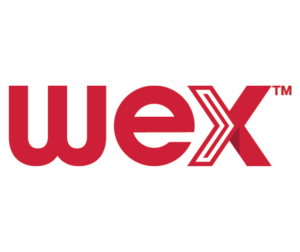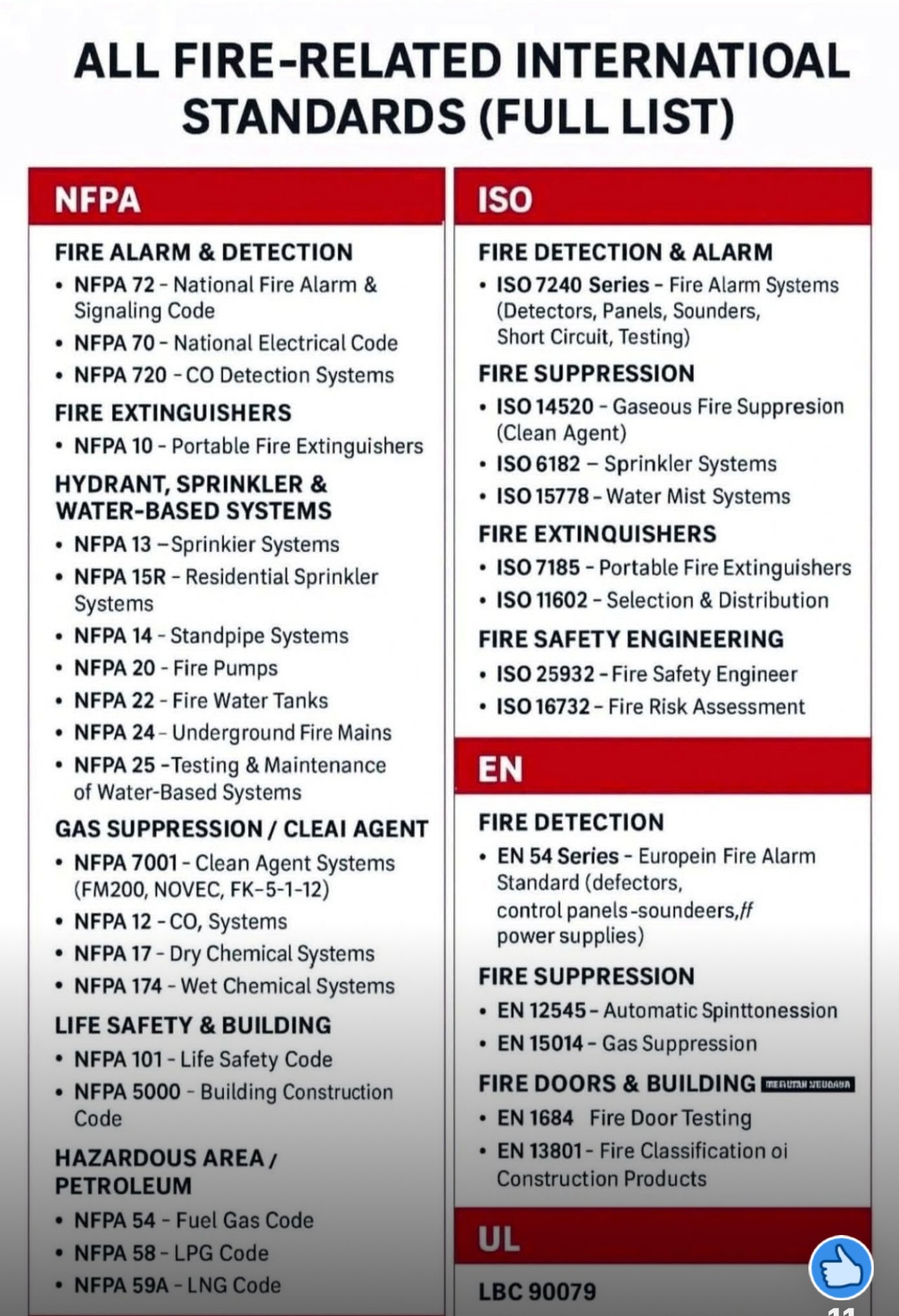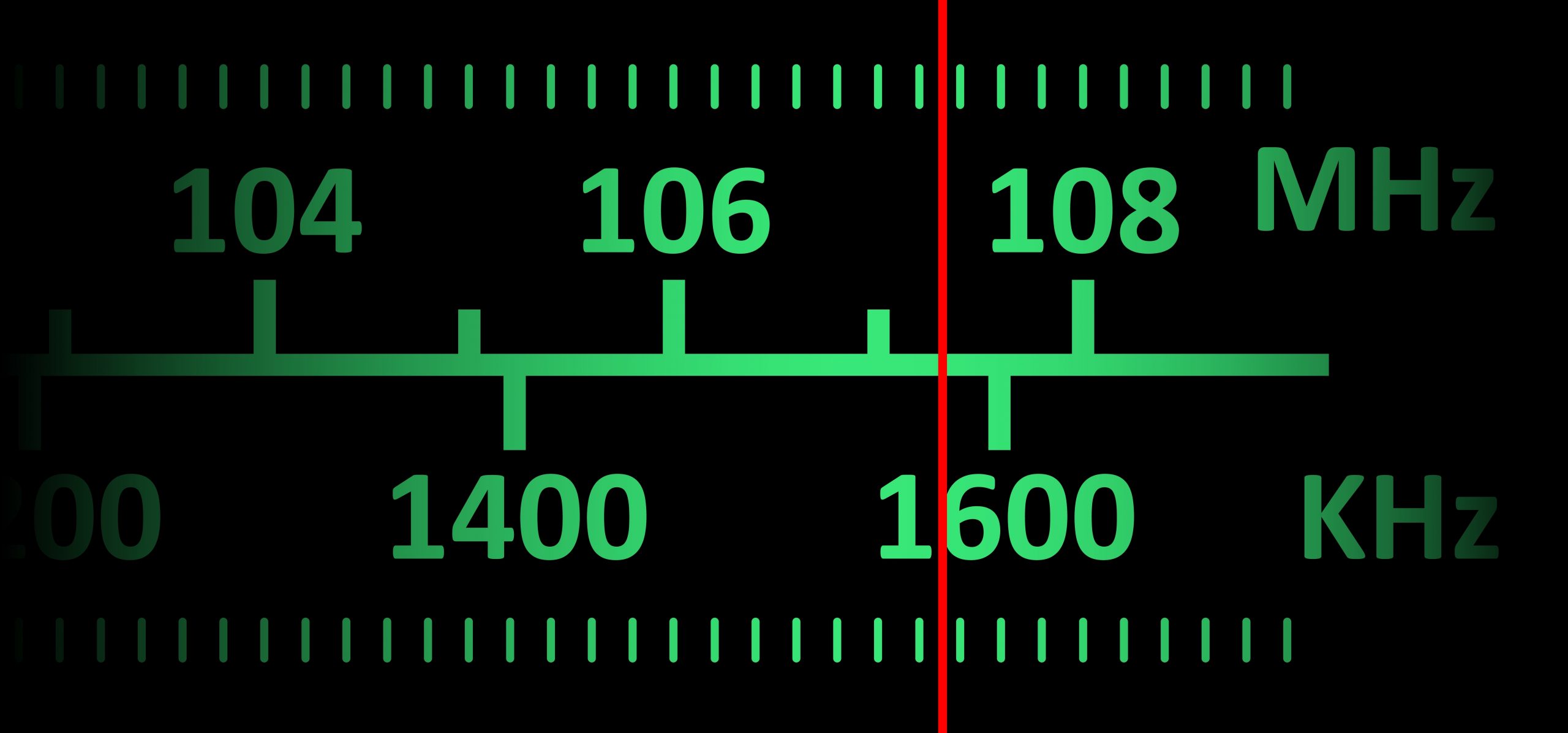In the life safety and property protection industry, codes and standards are more than reference documents—they are the foundation of professional practice. From system design and installation to inspection, testing, maintenance, and enforcement, the codes and standards that govern our work define what “safe,” “reliable,” and “compliant” truly mean. The image above highlights the breadth of fire-related standards used around the world, spanning detection, alarm, suppression, electrical systems, and building safety. For Louisiana professionals, understanding how these standards interact—and which ones apply—is essential to protecting lives, property, and your business.
At the national level, the work of National Fire Protection Association (NFPA) forms the backbone of life safety regulation across the United States. NFPA standards such as the National Fire Alarm and Signaling Code, the Life Safety Code, and the National Electrical Code establish minimum requirements for system performance, installation practices, and ongoing maintenance. In Louisiana, many of these standards are adopted by reference through the State Fire Marshal’s Office and local authorities having jurisdiction. That adoption makes NFPA compliance not optional, but mandatory, and places the responsibility squarely on licensed professionals to know and apply the correct editions and requirements.
At the same time, the industry does not operate in a vacuum. International standards developed by the International Organization for Standardization (ISO) and European Norms (EN) influence equipment manufacturing, system design, and performance testing worldwide. Many devices installed in Louisiana—fire alarm control units, detectors, suppression systems, and extinguishers—are designed and built to ISO or EN standards before they ever reach the U.S. market. A working knowledge of these standards helps professionals better understand product capabilities, limitations, and intended applications, particularly when dealing with specialized hazards, clean agent systems, or global manufacturers.
Equally important are product safety and performance certifications issued by organizations such as Underwriters Laboratories (UL). Listings and labels verify that equipment has been tested to recognized standards and performs as intended when installed correctly. For Louisiana contractors, installers, inspectors, and sales professionals, recognizing the role of third-party certification is critical when specifying equipment, documenting compliance, and defending installations during inspections or audits.
Understanding codes and standards is not just about passing inspections—it is about professional credibility and risk management. Improper application of a standard, failure to follow testing and maintenance requirements, or misunderstanding how multiple codes intersect can expose companies to liability, enforcement actions, and reputational damage. More importantly, it can put occupants, first responders, and property at unnecessary risk. Codes exist because lessons were learned—often through loss—and they represent the collective knowledge of the industry.
For Louisiana life safety and property protection professionals, this knowledge is also directly tied to licensing, continuing education, and ethical practice. Staying current with adopted codes, amendments, and referenced standards is part of being a responsible professional. It allows you to communicate clearly with regulators, educate customers accurately, and design systems that truly meet the intent of the law—not just the minimum line items on a plan review checklist.
The Louisiana Life Safety & Security Association (LLSSA) exists to support professionals in navigating this complex landscape. Through education programs, conventions, regional meetings, webinars, and industry updates, LLSSA helps bridge the gap between evolving codes and real-world application. In an industry where standards continue to expand and technology evolves rapidly, understanding the “why” behind the codes is just as important as knowing the rule itself.
In the end, codes and standards are not obstacles to overcome—they are tools that empower life safety and property protection professionals to do what matters most: protect people, safeguard property, and uphold the trust placed in our industry across Louisiana.











